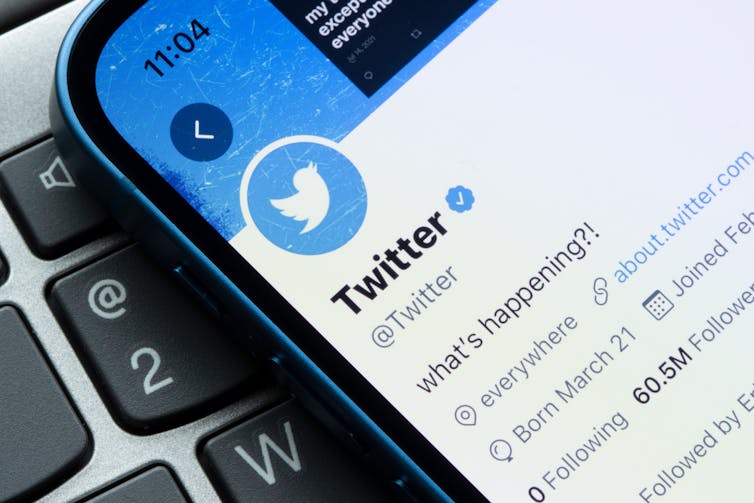Social media use has been shown to decrease mental health and well-being, and to increase levels of political polarization.
But social media also provides many benefits, including facilitating access to information, enabling connections with friends, serving as an outlet for expressing opinions and allowing news to be shared freely.
To maximize the benefits of social media while minimizing its harms, we need to better understand the different ways in which it affects us. Social science can contribute to this understanding. I recently conducted two studies with colleagues to investigate and disentangle some of the complex effects of social media.
Social media likes and public policy
In a recently published article, my co-researchers (Pierluigi Conzo, Laura K. Taylor, Margaret Samahita and Andrea Gallice) and I examined how social media endorsements, such as likes and retweets, can influence people’s opinions on policy issues.
We conducted an experimental survey in 2020 with respondents from the United States, Italy and Ireland. In the study, we showed participants social media posts about COVID-19 and the tension between economic activity and public health. Pro-economy posts prioritized economic activities over the elimination of COVID-19. For instance, they advocated for reopening businesses despite potential health risks.
Pro-public health posts, on the other hand, prioritized the elimination of COVID-19 over economic activities. For example, they supported the extension of lockdown measures despite the associated economic costs.
We then manipulated the perceived level of support within these social media posts. One group of participants viewed pro-economy posts with a high number of likes and pro-public health posts with a low number of likes, while another group viewed the reverse.
(Conzo et. al 2023)
After participants viewed the posts, we asked whether they agreed with various pandemic-related policies, such as restrictions on gatherings and border closures.
Overall, we found that the perceived level of support of the social media posts did not affect participants’ views — with one exception. Participants who reported using Facebook or Twitter for more than one hour a day did appear to be influenced. For these respondents, the perceived endorsements in the posts affected their policy preferences.
Participants that viewed pro-economy posts with high number of likes were less likely to favour pandemic-related restrictions, such as prohibiting gatherings. Those that viewed pro-public health posts with high number of likes were more likely to favour restrictions.
Social media metrics can be an important mechanism through which online influence occurs. Though not all users pay attention to these metrics, those that do can change their opinions as a result.
Active social media users in our survey were also more likely to report being politically engaged. They were more likely to have voted and discussed policy issues with friends and family (both online and offline) more frequently. These perceived metrics could, therefore, also have effects on politics and policy decisions.
Twitter’s retweet change and news sharing
In October 2020, a few weeks before the U.S. presidential election, Twitter changed the functionality of its retweet button. The modified button prompted users to share a quote tweet instead, encouraging them to add their own commentary.
Twitter hoped that this change would encourage users to reflect on the content they were sharing and to slow down the spread of misinformation and false news.
In a recent working paper, my co-researcher Daniel Ershov and I investigated how Twitter’s change to its user interface affected the spread of information on the platform.
We collected Twitter data for popular U.S. news outlets and examined what happened to their retweets after the change was implemented. Our study revealed that this change had significant effects on news diffusion: on average, retweets for news media outlets fell by over 15 per cent.

(Shutterstock)
We then investigated whether the change affected all news media outlets to the same extent. We specifically examined whether media outlets where misinformation is more common were affected more by the change. We discovered this was not the case: the effect on these outlets was not greater than for outlets of higher journalistic quality (and if anything, the effects were slightly smaller).
A similar comparison revealed that left-wing news outlets were affected significantly more than right-wing outlets. The average drop in retweets for liberal outlets was more than 20 per cent, but the drop for conservative outlets was only five per cent. This occurred because conservative users changed their behaviour significantly less than liberal users.
Lastly, we also found that Twitter’s policy affected visits to the websites of the news outlets affected, suggesting that the new policy had broad effects on the diffusion of news.
Understanding social media
These two studies underscore that seemingly simple features can have complex effects on user attitudes and media diffusion. Disentangling the specific features that make up social media and estimating their individual effects is key to understanding how social media affects us.
Like Instagram, Meta’s new Threads platform allows users to hide the number of likes on posts. X, formerly Twitter, has just rolled out a similar feature by allowing paid users to hide their likes. These decisions can have important implications for political discourse within the new social network.
At the same time, subtle changes to platforms’ design can have unintended consequences which depend on how users respond to these policies. Social scientists can play an important role in furthering our understanding of these nuanced effects of social media.



